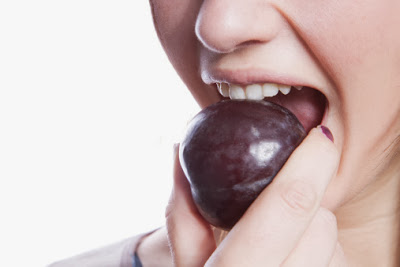

| Visitors Now: | |
| Total Visits: | |
| Total Stories: |

| Story Views | |
| Now: | |
| Last Hour: | |
| Last 24 Hours: | |
| Total: | |
Does picturing yourself eating fruit increase your fruit intake?
Health experts say we aren’t eating enough fruit. Perhaps psychology can help. Try this. Picture yourself eating a portion of fruit tomorrow – an apple, say, or a couple of plums. Take your time. Focus on the colours, the consistency, the flavour. Visualise where you are at the time, and what you are doing.
Do you think this simple imagery task will have increased the likelihood you will eat fruit tomorrow? A new study led by Catherine Adams attempted to find out. Over two hundred volunteers were split into three groups. One performed the fruit imagery task, another group did the same thing but for a biscuit bar of their choice (examples they were given included flapjacks, Kellogg’s Elevenses and Jaffa Cake bars), and a final group did not perform an imagery task.
Straight after, the participants answered questions about their food preferences, future consumption intentions, and they were offered a reward from a basket of fruits and biscuit bars. Two days later they were also asked by email whether they had any eaten fruit or a biscuit bars the day before (35 per cent of them answered this).
Once the researchers controlled for background factors (such as the possibility there were more fruit lovers in one condition or the other), they found that the fruit imagery task made no difference to participants’ intentions to eat fruit, no difference to their choice of fruit as a reward, nor their consumption of fruit the next day, as compared with the control group who didn’t perform the imagery. For the biscuit bar group, the imagery task increased their intentions to eat biscuit bars in the future, but didn’t actually alter their consumption (as compared against the no-imagery control group).
“These effects suggest different effects for different visualised behaviours,” the researchers said. “Further investigation is needed before recommending visualisation for increasing fruit consumption.”
As the researchers’ acknowledged, there are some issues with the study that mean caution is needed in interpreting the results. For instance, just one brief imagery session may well be inadequate. Also, other research suggests imagery works best when combined with other strategies, such as “if-then” implementation plans (e.g. If I am hungry, then I will snack on some fruit). The response rate to the follow-up email was also disappointing, and bear in mind that participants may have felt the food they chose immediately after the imagery was a form of reward, and therefore may not reflect their usual eating choices. These issues show how difficult health behaviour research can be.
_________________________________ ![]()
Adams C, Rennie L, Uskul AK, and Appleton KM (2013). Visualising future behaviour: Effects for snacking on biscuit bars, but no effects for snacking on fruit. Journal of health psychology PMID: 24217063
–Further reading–
The Digest guide to willpower
Less is more when it comes to beating bad habits
If-then plans help protect us from the ‘to hell with it’ effect
The mindbus technique for resisting chocolate – should we climb aboard?
Post written by Christian Jarrett (@psych_writer) for the BPS Research Digest.
Source: http://bps-research-digest.blogspot.com/2013/12/does-picturing-yourself-eating-fruit.html



